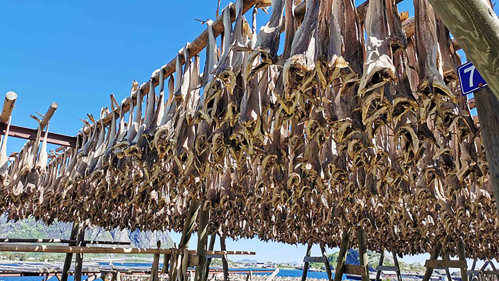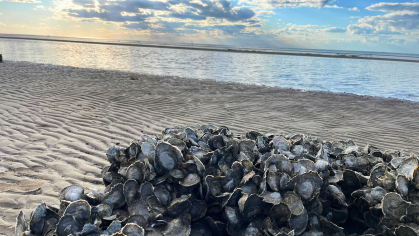Overfishing Linked to Rapid Evolution of Codfish

Rutgers-led genetic analysis of Atlantic cod also shows fish, if properly managed, may rebound and provide sustainable food source
The overfishing of codfish spanning the second half of the 20th century indicates that human action can force evolutionary changes more quickly than widely believed, according to a Rutgers-led study.
Published in the Philosophical Transactions of the Royal Society B: Biological Sciences, a report by scientists offers the first genomic evidence that Atlantic cod evolved new traits over only decades during a period of overfishing – evolutionary changes that scientists formerly believed could take millions of years.
“The discovery was made possible by new technology that allowed us to extract and read the genetic code of cod, some caught more than 110 years ago, as well as new analytical techniques that detect subtle changes in that genetic code,” said Malin Pinsky, senior author on the study and an associate professor in the Department of Ecology, Evolution and Natural Resources at Rutgers School of Environmental and Biological Sciences (SEBS).
Scientists had noted that many overfished cod, by the end of the 20th century, had developed what looked to be a survival advantage – maturing earlier and growing less large, making them less likely to be singled out to be caught and more likely to reproduce before being caught. Searches for transformations in key genes, however, turned out to be unsuccessful.
Undeterred, the researchers asked a different question. What if the changes were occurring in many genes at once, rather than a few? The insight, coupled with new technology, propelled the Rutgers-led team to make the discovery.
“We have now been able to demonstrate that many genes throughout the genome did shift in the same way in cod from both sides of the Atlantic Ocean over the past 100 years,” said Brendan Reid, first author on the study and a postdoctoral associate in the Department of Ecology, Evolution and Natural Resources at SEBS. “This suggests that cod did indeed evolve in response to fishing through small changes in many genes, something we didn’t have clear evidence for before in any overfished species.”
Atlantic cod live in cold waters and deep-sea regions throughout the North Atlantic. Popular for their mild flavor and dense, flaky flesh, codfish is one of the most common ingredients in fish and chips. Cod livers are processed to make cod liver oil, a common source of essential vitamins.
In the 1990’s, Atlantic cod populations fell to 1 percent of historical levels, due to decades of overfishing. Starting in the 1970s, powerful trawlers equipped with advanced radar and sonar systems allowed commercial fishermen to collect cod from a larger area, and fish more deeply and for longer periods than ever before. Cod stocks, as a result, were depleted at a faster rate than could be replenished, ultimately leading to the fisheries’ collapse, and as the Rutgers-led research shows, its rapid evolution.
The new research insights offer hope for the possible re-emergence of the codfish population which has been slowly rebounding since fishing pressure has been reduced, the scientists said.
“Since evolution in response to fishing happened through lots of small changes in many genes rather than large changes in one or two genes, and cod have maintained most of their genetic diversity, it will be easier for cod to evolve back towards their previous pattern of slower growth at large sizes,” Reid said. “The fact that cod populations are rebounding and shifting back towards previous patterns of growth suggests, given proper management, this fishery can return to its previous state and provide a sustainable source of food for a large number of people and a source of income for coastal communities that heavily depend on fishing.”
Bastiaan Star of the University of Oslo in Norway also collaborated on the study.


